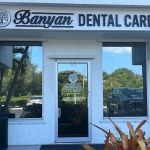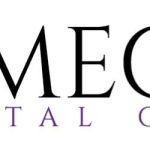How to Effectively Treat Tooth Decay in Adults with a Poor Diet
- 1. Understanding Tooth Decay and Its Causes
- 2. The Link Between Poor Diet and Tooth Decay
- 3. Treatment Options for Adults with Poor Diet
- 4. Preventive Measures and Tips for Maintaining Healthy Teeth
1. Understanding Tooth Decay and Its Causes
Tooth decay, also known as dental caries or cavities, is one of the most common oral health issues among adults. It occurs when the enamel—the outer layer of your teeth—breaks down due to acids produced by bacteria in the mouth. These acids are typically formed from food particles that are left on the teeth, especially sugary and starchy foods. Over time, this can lead to permanent damage, creating holes in the teeth that require dental treatment.
In adults, tooth decay is often exacerbated by factors such as poor diet, inadequate oral hygiene, and lack of regular dental check-ups. When left untreated, tooth decay can lead to severe infections, tooth loss, and even systemic health problems. Understanding the causes and recognizing the symptoms early on is key to preventing further damage.
2. The Link Between Poor Diet and Tooth Decay
A poor diet plays a significant role in the development of tooth decay. Diets high in sugary, processed, and acidic foods provide the perfect environment for bacteria to thrive in the mouth. These bacteria feed on sugars and produce acids that erode the enamel. Without proper care, tooth decay progresses rapidly.
For adults who frequently consume junk food, sugary snacks, carbonated drinks, and alcohol, the risk of tooth decay is significantly higher. These foods not only contribute to plaque build-up but also lack essential nutrients that promote healthy teeth, such as calcium and vitamin D.
Making changes to one's diet can be a crucial step in reducing the risk of tooth decay. Consuming more fruits, vegetables, dairy products, and whole grains helps to strengthen the teeth and gums, reducing the chances of cavities forming in the future.
3. Treatment Options for Adults with Poor Diet
If you're dealing with tooth decay as a result of poor dietary habits, there are several treatment options available to help restore your oral health:
- Dental Fillings: When cavities form, dental fillings are the most common way to restore teeth. The decayed portion of the tooth is removed and filled with materials such as composite resin, porcelain, or amalgam.
- Root Canals: If the decay reaches the nerve of the tooth, a root canal treatment may be necessary. This procedure involves removing infected tissue and sealing the tooth to prevent further damage.
- Crowns: For more extensive damage, a dental crown may be placed over the tooth to protect it from further decay and restore its shape and function.
- Preventive Dental Care: Regular professional cleanings, fluoride treatments, and the use of sealants can help protect teeth from further decay. Your dentist may also recommend specific products to combat plaque and bacteria buildup.
4. Preventive Measures and Tips for Maintaining Healthy Teeth
While treatment is essential, prevention is always better than cure. Here are some preventive measures and tips to help protect your teeth and prevent further decay:
- Brush Regularly: Brush your teeth at least twice a day with fluoride toothpaste to remove plaque and prevent tooth decay.
- Floss Daily: Flossing helps remove food particles and plaque from between the teeth, where a toothbrush can't reach.
- Limit Sugary Foods: Reduce your intake of sugary and acidic foods. Opt for healthier snacks, such as fruits and vegetables, that help promote good oral health.
- Drink Water: Drink plenty of water throughout the day to help wash away food particles and bacteria. Water also helps to neutralize acids in the mouth.
- Visit the Dentist Regularly: Regular dental check-ups are essential to catch any early signs of tooth decay and maintain overall oral health.
By adopting a healthy lifestyle and taking proper care of your teeth, you can significantly reduce the risk of tooth decay, even if your diet has not been ideal in the past.
Remember, the earlier you address tooth decay, the less expensive and less invasive the treatment will be. If you're experiencing symptoms of tooth decay or want to improve your oral health, don't hesitate to consult a dental professional for advice and personalized care.







 Banyan Dental Care4.0 (90 review)
Banyan Dental Care4.0 (90 review) Associated Oral & Maxillofacial Surgeons4.0 (63 review)
Associated Oral & Maxillofacial Surgeons4.0 (63 review) La Cienega Dental Group4.0 (37 review)
La Cienega Dental Group4.0 (37 review) Affordable Dentures & Implants4.0 (855 review)
Affordable Dentures & Implants4.0 (855 review) Stephanie ML Wong, DMD, Inc.5.0 (1 review)
Stephanie ML Wong, DMD, Inc.5.0 (1 review) Omega Dental Care4.0 (74 review)
Omega Dental Care4.0 (74 review) The Importance of Oral Health Education During Pregnancy for a Healthy Pregnancy
The Importance of Oral Health Education During Pregnancy for a Healthy Pregnancy Best Tips for Brushing Your Teeth Properly for Healthy Gums: Essential Techniques for Oral Health
Best Tips for Brushing Your Teeth Properly for Healthy Gums: Essential Techniques for Oral Health Why Skipping Dental Checkups Can Lead to Bigger Oral Health Problems
Why Skipping Dental Checkups Can Lead to Bigger Oral Health Problems Advantages of Porcelain Dental Restorations
Advantages of Porcelain Dental Restorations How Can Diabetes Cause Tooth and Gum Problems? Preventing and Managing Oral Health Issues
How Can Diabetes Cause Tooth and Gum Problems? Preventing and Managing Oral Health Issues Healthy Habits for Promoting Good Oral Health and Hygiene: Tips for a Healthy Smile
Healthy Habits for Promoting Good Oral Health and Hygiene: Tips for a Healthy Smile